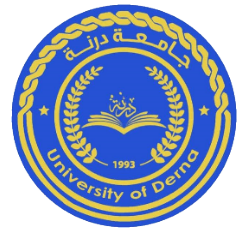معدلات التحضر والنمو الاقتصادي في ليبيا: هل الإعتبارات البيئية مهمة؟
الكلمات المفتاحية:
معدلات التحضر، النمو الاقتصادي المادي، النمو الاقتصادي المستدام،، الاقتصاد الليبيالملخص
هدف هذا البحث إلى قياس العلاقة بين معدلات التحضر والنمو الاقتصادي المادي والمستدام في الاقتصاد الليبي، ولتحقيق هذا الهدف استخدم البحث بيانات سنوية تغطي الفترة 1990-2020، وتبنى نموذج الانحدار الذاتي لفترات الإبطاء الموزعة المطور، وقد بينت نتائج البحث وجود علاقة موجبة بين متغير معدلات التحضر والنمو الاقتصادي المادي، وعلاقة سالبة تربطه بالنمو الاقتصادي المستدام.
المراجع
Anwar, A., Younis, M., & Ullah, I. (2020). Impact of urbanization and economic
growth on CO2 emission: a case of far east Asian countries. International
Journal of Environmental Research and Public Health, 17(7), 2531.
Arouri, M. E. H., Youssef, A. B., Nguyen-Viet, C., & Soucat, A. (2014). Effects
of urbanization on economic growth and human capital formation in
Africa.
Bakirtas, T., & Akpolat, A. G. (2018). The relationship between energy
consumption, urbanization, and economic growth in new emerging-market
countries. Energy, 147, 110-121.
Liang, W., & Yang, M. (2019). Urbanization, economic growth and
environmental pollution: Evidence from China. Sustainable Computing:
Informatics and Systems, 21, 1-9.
Long, R., Gan, X., Chen, H., Wang, J., & Li, Q. (2020). Spatial econometric
analysis of foreign direct investment and carbon productivity in China:
Two-tier moderating roles of industrialization development. Resources,
Conservation and Recycling, 155, 104677.
Majeed, M. T., & Tauqir, A. (2020). Effects of urbanization, industrialization,
economic growth, energy consumption, financial development on carbon
emissions: an extended STIRPAT model for heterogeneous income
groups. Pakistan Journal of Commerce and Social Sciences (PJCSS),
14(3), 652-681.
McGrattan, E. R. (1998). A defense of AK growth models. Federal Reserve Bank
of Minneapolis Quarterly Review, 22(4), 13-27.
Mehmood, U., & Mansoor, A. (2021). CO2 emissions and the role of
urbanization in East Asian and Pacific countries. Environmental Science
and Pollution Research, 28(41), 58549-58557.
Muhammad, S., Long, X., Salman, M., & Dauda, L. (2020). Effect of
urbanization and international trade on CO2 emissions across 65 belt and
road initiative countries. Energy, 196, 117102.
Nguyen, H. M. (2018). The relationship between urbanization and economic
growth: An empirical study on ASEAN countries. International Journal of Social Economics, 45(2), 316-339.
Our World data, OWD. https://ourworldindata.org/co2-and-other-greenhousegas-emissions.
Tripathi, S., & Mahey, K. (2017). Urbanization and economic growth in Punjab
(India): an empirical analysis. Urban Research & Practice, 10(4), 379-402.
Turok, I., & McGranahan, G. (2013). Urbanization and economic growth: the
arguments and evidence for Africa and Asia. Environment and
urbanization, 25(2), 465-482.
United Nations Conference on Trade and Development UNCTAD, Online
statistical Database, Date: 13.08.2019. https://unctadstat.unctad.org/
WB, World Bank Database: https://data.worldbank.org/
Sam, C. Y., McNown, R., & Goh, S. K. (2019). An augmented autoregressive
distributed lag bounds test for cointegration. Economic Modelling, 80,
130-141.
Long, R., Gan, X., Chen, H., Wang, J., & Li, Q. (2020). Spatial econometric
analysis of foreign direct investment and carbon productivity in China:
Two-tier moderating roles of industrialization development. Resources,
Conservation and Recycling, 155, 104677.



























